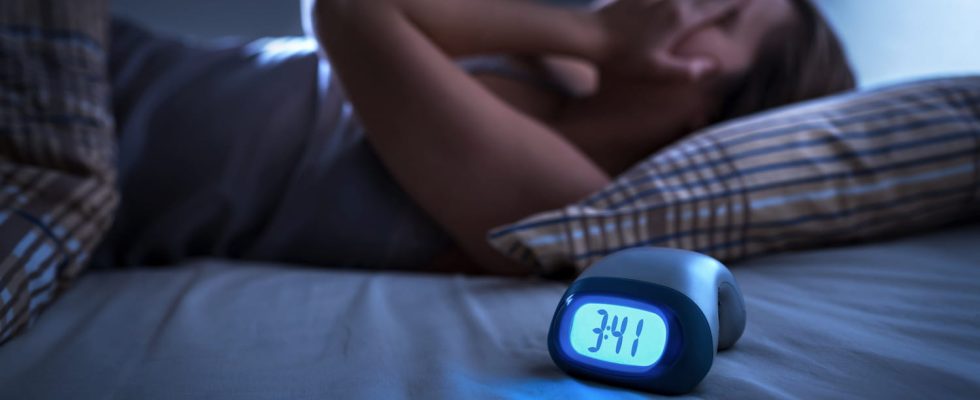Inserm researchers show that avoiding insomnia protects cardiovascular health. So, getting enough sleep each night can reduce the risk of stroke.
Sleep and cardiovascular health are linked, this no longer needs to be demonstrated. But the team of Jean-Philippe Empana, Inserm research director in Paris, wanted to go further in exploring this association. To do this, she studied the risk of cardiovascular accidents (acute coronary syndrome or stroke) in connection with five components of sleep: duration of sleep each nightthe chronotype (the fact ofbe a morning person or evening), the frequency of insomniaexcessive daytime sleepiness and apneas some sleep. Two studies were carried out: one in Paris including 10,157 adults from 50 to 75 years old; the other in Switzerland with 6,733 volunteers over 35 years old. Based on questionnaires, the researchers assigned each person a score ranging from 0 to 5 depending on their sleeping habits, a first time at the start of the study then two to five years later. The occurrence of cardiovascular events was then monitored for approximately 8 to 10 years.
“Nearly 60% of cardiovascular accidents could be avoided”
Compared to people who have a score of 0-1 (worse score), the risk of cardiovascular events including stroke is reduced by 63% for those with the best score of 5. “In other words, nearly 60% of cardiovascular accidents could potentially be avoided if individuals all had an optimal sleep score” commented Jean-Philippe Empana. To have a score of 5, volunteers had to:
- to have 7 to 8 hours of sleep per night,
- be a morning person,
- not have insomnia,
- not have apnea
- not have excessive sleepiness during the day
“Importantly, the risk of developing cardiovascular pathologies has decreased by 16% for each score point gained over time. Each sleep habit seems to be as important as the others” underlines Inserm in its communicated. While it is therefore important to try to get at least 7 hours of sleep per night, it is also good to avoid insomnia to reduce your risk of stroke and to manage the symptoms of sleep apnea.
